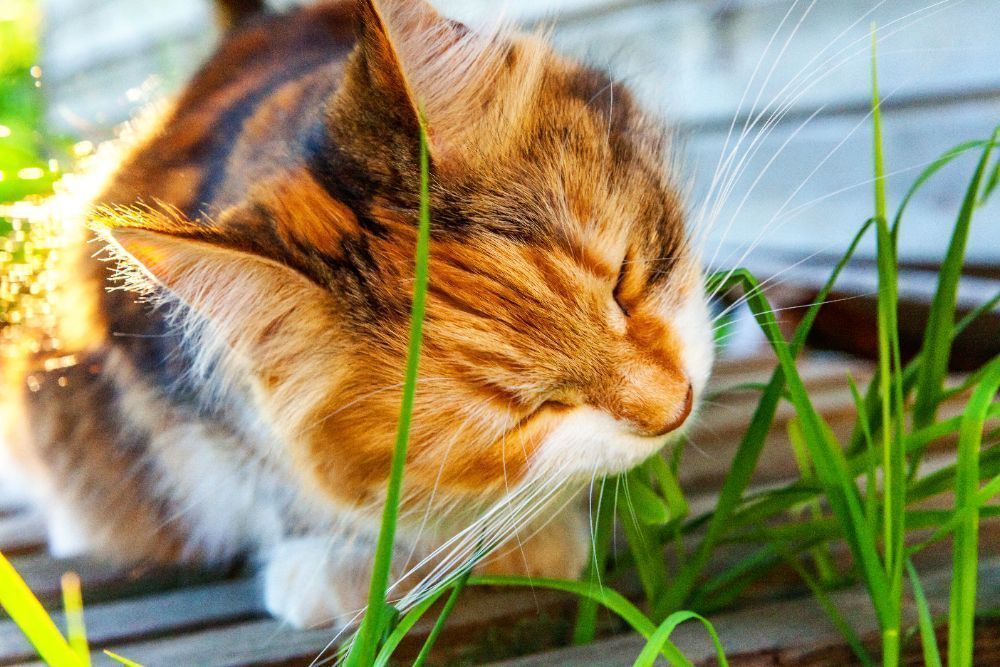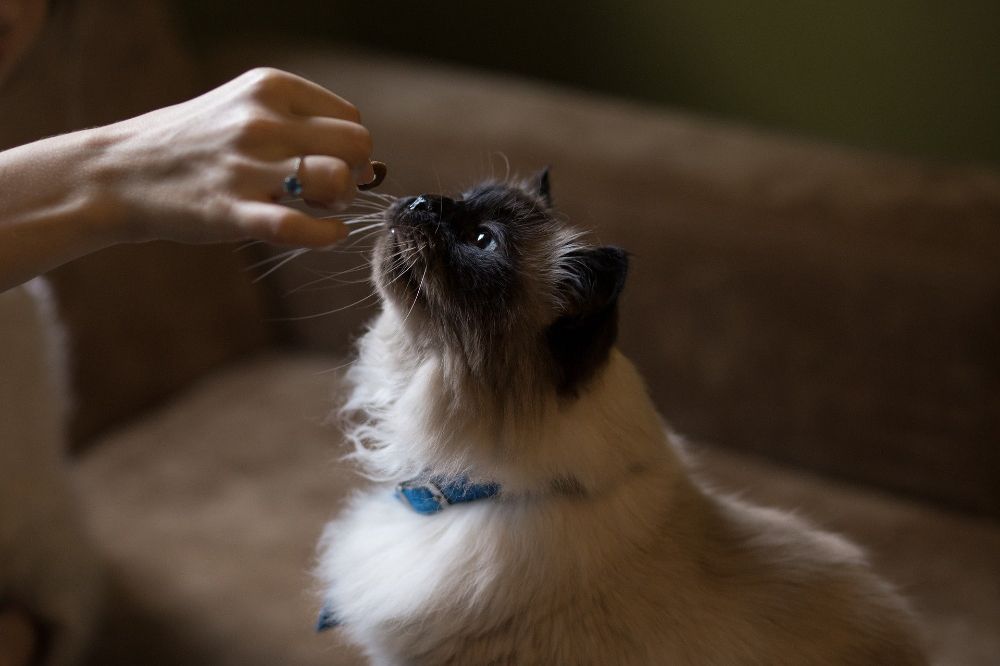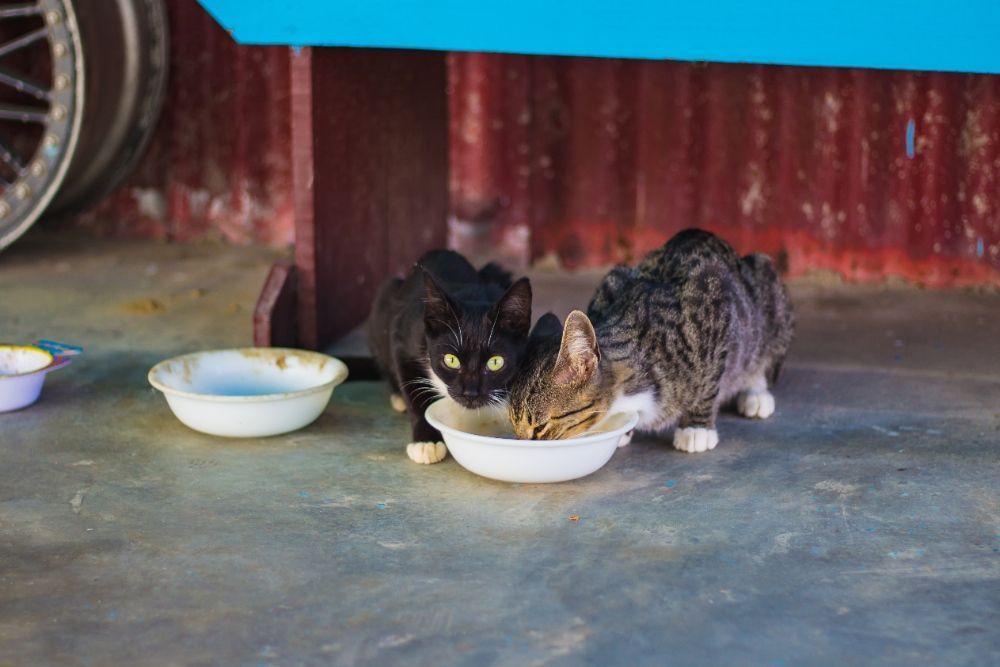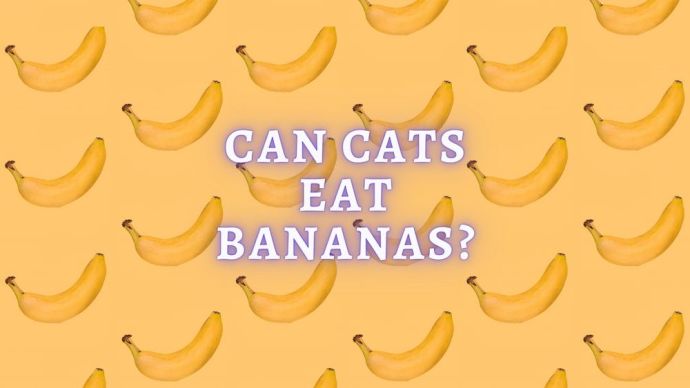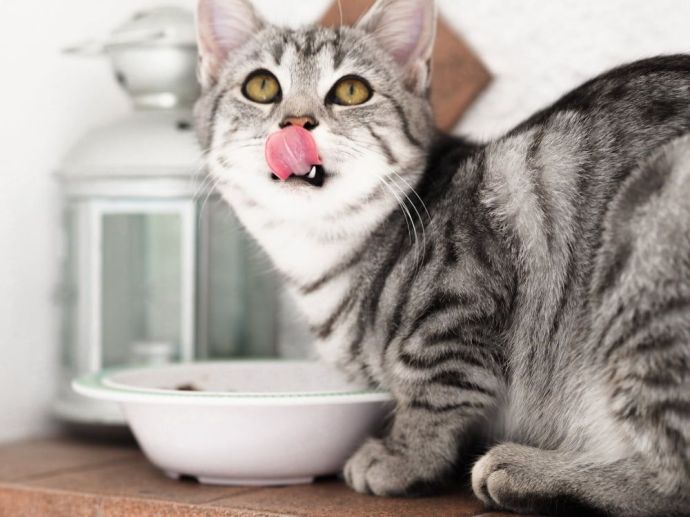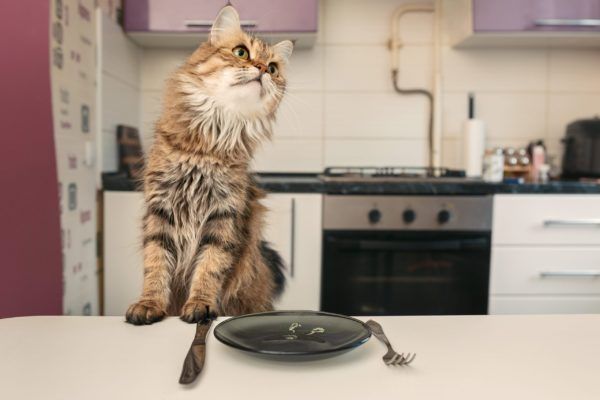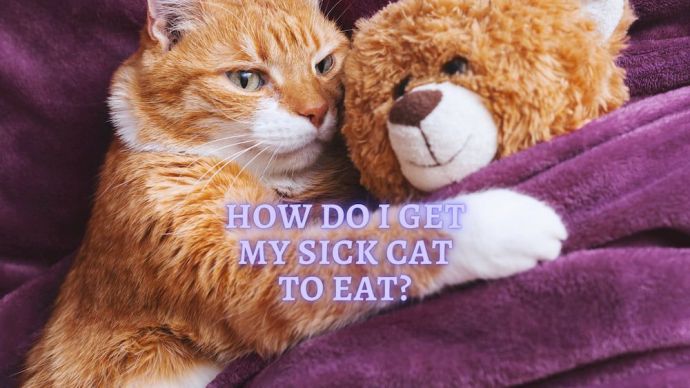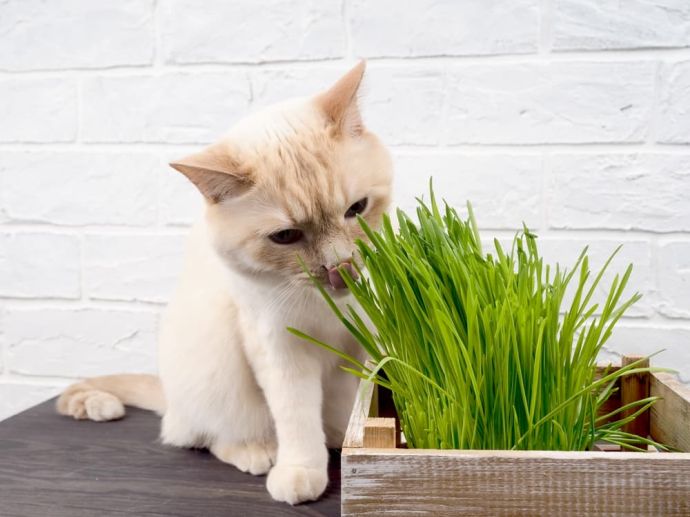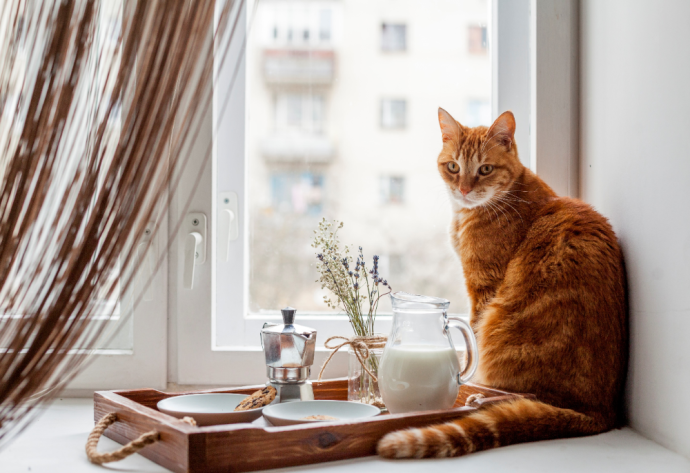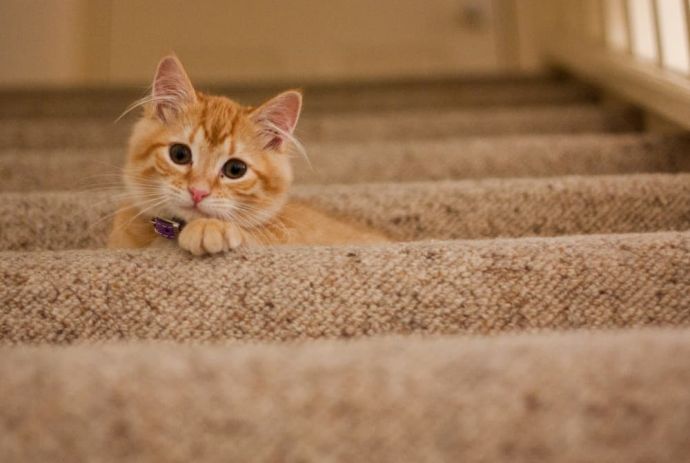What Can Cats Eat: Recommendations from a Vet
Written by:
Author: Dr. Linda Simon
Dr. Linda Simon is a veterinary surgeon working with seven years of experience. She is a fellow of the British Veterinary Association and specializing in animal medicine. Also, she has been the Woman magazine resident vet for the past two years and writes a regular column for them, focusing on pets and their health.
View all 30 articlesLearn about our editorial process and veterinary review board.
Viewed: 952
Updated on: 06/09/2021
Our Cats and Their Food
Our furry felines have come a long way from the days when they would exist off food scraps and what they managed to hunt in the great outdoors. Nowadays, birds and rats are generally seen as a sport rather than food and pet cats all around the world are enjoying a varied and wholesome diet.
For some owners, their feline companions can pose a challenge when deciding what to feed (and what not to feed!). With conflicting advice online, it can be tricky separating fact from fiction. This article comprehensively discusses our cats and their relationship with food.
Sharing is Caring?
Most owners enjoy sharing their meals with their kitties from time to time as a treat, but many are unsure about what is safe to give and what is not. While cats need to eat their own commercial food to ensure they have a balanced diet and are getting all of the essential vitamins and minerals, there’s no harm in offering them a tasty titbit every now and then.
Some foods that can be shared include:
- Fresh meat such as skinless chicken and turkey. (Avoid meat that has been cooked in oil or sauce).
- Cooked eggs
- Cooked fish such as salmon, cod and tinned tuna
- Seafood such as prawns
- Certain fruits and vegetables.
The worry with feeding too much human food to cats is that they can become ‘spoiled’ and begin to refuse their regular diet. Some owners will claim they have a cat that will ‘only eat chicken’, but the truth is that the cat prefers chicken to other foods and the owner enables this cheeky behavior! Be sure to offer a titbit only after your cat has finished their own meal and don’t make it a regular habit.
While we can add human food to cat food to make it more palatable, this really shouldn’t be necessary and usually leads to a fussy cat that picks out the tastier morsels and leaves their commercial diet behind.
Can Cats Eat Fruit and Vegetables?
Fruit
While cats certainly do not need their ‘five a day’, we can offer them some tasty produce from time to time. The safest fruits to give them include apples, bananas, and strawberries. They can be chopped up finely and added to their meal if preferred. Citrus fruits such as grapefruit should be avoided as it can cause an upset stomach in some. Interestingly, cats do not have taste buds for sweet flavors, so they are generally not big fans of the fruit.
Also, you can read more about Cat Gurgling Stomach and find recommendations to do if your cat has a bad stomach.
Vegetables
Many commercial cat diets will already include certain vegetables such as carrots, peas, and broccoli. If we have some as leftovers, there’s no reason they can’t be added to their food bowl in small amounts.
READ MORE: Automatic Cat Feeder Review
What to Avoid in Cat Food?
While perfectly fine for us to eat, some of the foods on our plate can pose a health issue to cats. Every cat is an individual, and some will be more sensitive than others, but certain foods should be avoided in all cases:
1. Dairy
While it’s true that most cartoon cats happily drink cream and milk and Garfield is partial to a cheesy lasagna, dairy is actually not on the menu for cats as they tend to become lactose intolerant once they reach maturity. Even small portions of dairy can lead to uncomfortable stomach upsets and runny poo. While a number of cats may not show obvious symptoms, they may experience bloating or cramping that is difficult for an owner to perceive. Cats should only be given water to drink once they have been weaned from their mother. Even milk marketed as ‘cat milk’ may be poorly tolerated by some.
2. Fatty foods
Such as greasy hamburgers and French fries should be avoided. Not only for the obvious reason that they can cause obesity in the long run, but also because they may lead to a life-threatening condition called pancreatitis.
3. Dog food
While feeding one or two tins when in a pickle is likely okay, this is not something we should make a habit of. Dog food does not contain the correct balance of ingredients for cats and will be lacking in Taurine and Arginine; amino acids that cats require in higher amounts than their canine compadres. As cat food has a higher protein content, most cats will agree that it tastes better than dog food anyway.
4. Raw food
The feeding of raw food is a highly controversial topic. In recent years, more owners are choosing to feed a raw diet than ever before, but it is important to recognize the potential risks. Raw meat can cause food poisoning and parasitic infections in cats, just as it can in people.
READ MORE: Can Cats eat Spicy Food
Which Foods are Toxic fo Cat?
There are certain food items that can be toxic to cats. Some of these may surprise readers as they are eaten regularly be people and other animals. Making ourselves aware of which foods to avoid can prevent a late-night visit to the emergency hospital, or even a fatality.
- Grapes, Sultanas and Raisins. Interestingly, we still do not know what these fruits can cause a sudden and life-threatening renal failure. Some cats will eat grapes their whole lives without any adverse reactions, while others may eat just a handful of raisins or a piece of fruit cake and develop kidney disease. As it’s impossible to predict which cats will be affected, it is sensible to avoid these fruits at all costs.
- Chocolate. The toxic ingredient in chocolate is theobromine and the higher the concentration, the more the adverse reactions. Dark chocolate has more theobromine than milk chocolate, while white chocolate has none. Symptoms of chocolate toxicity can include salivating, vomiting and shaking. Thankfully, cats are not keen on sweet foods so do not often eat chocolate.
- Onions and Garlic. These vegetables may be fed mistakenly when added to gravies or stews. Some old-fashioned de-wormers may also contain garlic; a practice that has now fallen out of favour because of what we have learned about the negative effect that garlic can have on cats. While one or two small pieces are unlikely to cause an issue, when fed in large amounts over a period of time, these veggies can lead to a ‘haemolytic anaemia’, whereby the body breaks down its own red blood cells.
What to do if My Cat might have eaten one of the above foods?
Even the most careful owner may one day find themselves in a situation where their cat has ingested food that they shouldn’t have. Whether a well-meaning but ill-informed guest has given it to them, or perhaps they have stolen it from our plate or raided our bin, it is a situation that arises all too frequently.
The sooner we act, the better the prognosis, so it’s best to always call a vet immediately. Depending on what they have eaten and how much, the vet may well recommend that they are brought in to the clinic to be given an injection to make them throw up. In some cases, patients may also be given some activated charcoal to help absorb the toxins, as well as an intravenous fluid drip to flush their systems through.
Which Plants are Toxic to Cats?
While cats can be fastidious eaters, some are silly enough to chow down on flowers and plants. While, for the most part, this shouldn’t cause major issues, some plants are highly toxic to cats and must be avoided at all costs. There are a wide range of plants that we need to steer clear of, including:
- Lilies. Probably the best-known toxic flower is the lily. It is so dangerous that cats can become ill from simply consuming a small amount of pollen that may have landed on their fur when brushing past. In fact, even the water in the vase can pose a danger. Within hours, cats’ kidneys will begin to fail and, without treatment, they can quickly pass away.
- Chrysanthemums. Eating these yellow flowers that contain pyrethrins can cause symptoms including vomiting and drooling. Sensitive cats may also develop an irritating dermatitis if their skin comes into contact with the flower.
- Marijuana. One of the most common illegal drugs that cats can have access to, eating marijuana can lead to hyperactivity or lethargy. Different cats are affected in different ways. Eating large amounts can cause seizures, coma and even death.
By knowing which plants can be fatal, we can be sure to keep them out of our homes and gardens. If you think your cat has ingested a toxic plant, do not wait for symptoms to occur and go straight to your local veterinary clinic for emergency treatment.
What if my Cat won’t eat Anything?
Refusal to eat (a symptom known as ‘anorexia’ in the veterinary world) can be a real cause for concern. It can be normal for an animal to skip a meal from time to time, perhaps if they have gone hunting, eaten a meal from the neighbour’s garden or have not been particularly active that day. However, if they continue to skip meals or go on a complete hunger strike, this is a real red flag.
Over time, cats may lose muscle mass and weight. Owners may also notice that they lack energy, spend much of their time sleeping and have a lackluster coat.
There are a wide and varied range of causes for a reduced appetite, including:
- Oral Disease. A bad tooth, oral ulcer or a tumour growing within the mouth can all interfere with eating. Cats may go off their food completely or may opt to eat only wet food or lick the jelly from their meat.
- Metabolic Disease. Certain conditions such as liver failure or kidney failure will result in nausea and a lack of appetite. A basic blood test should be able to easily detect these conditions.
- Infections. It is not uncommon for cats to pick up viral and bacterial infections. Many will cause a fever and malaise, resulting in a kitty that is not so keen on chowing down. If a cat has a blocked nose, their inability to smell can turn them right off their food. For most, their appetite will pick back up in a few days.
- Generalized pain. Any source of pain, whether it be an arthritic hip or an infected ear, can result in a decreased appetite.
Cats typically enjoy eating and when they turn their noses up at their favorite foods, it is a good indication that they are in need of a checkup.
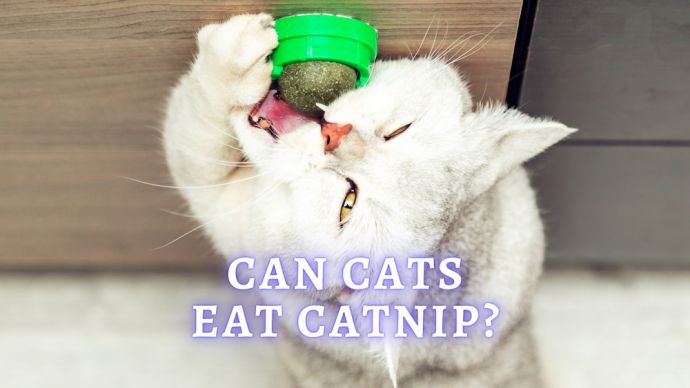 Cat Care Can Cats Eat Catnip? Are There Any Health Benefits to Cats Eating Catnip?
Cat Care Can Cats Eat Catnip? Are There Any Health Benefits to Cats Eating Catnip? - 97
- 0
 Cat Care Why Does My Cat Attack My Legs? 10 Reasons Why and What To Do About It (Vet-Approved Advice)
Cat Care Why Does My Cat Attack My Legs? 10 Reasons Why and What To Do About It (Vet-Approved Advice) - 46013
- 21
 Cat Veterinary Tips Cat Stomach Gurgling: Vet Advice on Why is Your Cat Stomach Gurgling?
Cat Veterinary Tips Cat Stomach Gurgling: Vet Advice on Why is Your Cat Stomach Gurgling? - 36469
- 4
 Cat Veterinary Tips My Cat Lost its Voice: Can Cats get Laryngitis? (Vet Advice)
Cat Veterinary Tips My Cat Lost its Voice: Can Cats get Laryngitis? (Vet Advice) - 23554
- 13









